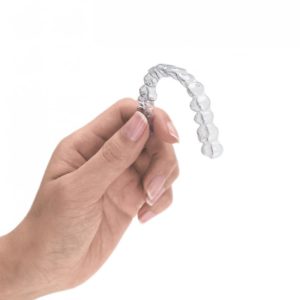26 Sep I have a bad bite – Can Invisalign help?
 Many patients who want to improve their smiles through orthodontic treatment have problems that go beyond misaligned teeth. When the jaws do not fit together properly, the resulting malocclusion (“bad bite”) can significantly detract from the smile as much as crooked teeth do.
Many patients who want to improve their smiles through orthodontic treatment have problems that go beyond misaligned teeth. When the jaws do not fit together properly, the resulting malocclusion (“bad bite”) can significantly detract from the smile as much as crooked teeth do.
Invisalign is an increasingly popular orthodontic intervention because it is convenient and the clear plastic trays do not interfere with the smile’s aesthetics during treatment. In the past, though, many patients who need to have their jaws repositioned might not have been able to take advantage of Invisalign.
The earliest forms of Invisalign were only capable of repositioning the teeth. However, as this treatment system has become more advanced in recent years, Invisalign is now capable of treating a wide variety of more severe cases.
In fact, your dentist now can use Invisalign to address a number of conditions with the jaw, including overbites, underbites, cross bites and open bites, as well as excessive crowding in the teeth (which may be due to insufficient space in the jaw).
Some patients with certain types of malocclusions, particularly those that are severe or complex, may not get the desired results from Invisalign. The dentist will evaluate each patient on a case-by-case basis to make sure that Invisalign is the appropriate intervention.
As is the case for all Invisalign patients, your ability to achieve your smile goals is based on how conscientious you are about the trays. It is the patient’s responsibility to switch the trays on the schedule recommended by the dentist, which is usually every other week or so. You must also be sure to wear the trays at least 20-22 hours per day to facilitate the necessary movement.
Invisalign may be able to help improve your smile’s appearance, even if you have misaligned jaws. Schedule an evaluation with our dentist, Dr. Kozlow, who is trained in providing Invisalign treatment.
